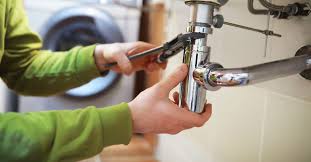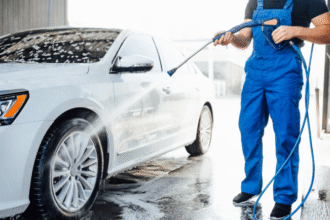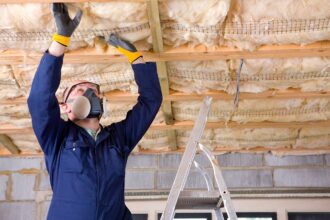Plumbing problems rarely start as full-blown emergencies. More often, they begin as small leaks, strange noises, or minor drain issues that seem easy to ignore. But without early action, these “small” issues can quickly spiral into expensive repairs, water damage, or even health risks.
That’s where preventive plumbing maintenance comes in. By scheduling regular check-ups and addressing small problems early, you protect your home, avoid unnecessary costs, and gain peace of mind. On the other hand, knowing the warning signs of a plumbing emergency is equally important—because waiting too long can make a bad situation much worse.
This article explores how preventive plumbing saves money in the long run and the red flags that mean you need to call a professional emergency plumber in Melbourne right away.
Why Preventive Plumbing Is Worth the Investment
Homeowners often view plumbing maintenance as an unnecessary expense—until they face the shock of a burst pipe repair, sewer backup, or hot water system failure. Preventive plumbing flips that script by turning unpredictable disasters into manageable, low-cost fixes.
- Detects Leaks Before They Cause Water Damage
A dripping tap or hidden leak behind a wall may seem harmless, but even a slow drip can waste thousands of litres of water per year and weaken structural materials. Routine inspections catch these leaks early, preventing costly water damage and mould growth.
- Extends the Life of Appliances
Hot water systems, dishwashers, and washing machines all rely on clean, consistent water flow. Preventive servicing keeps them running efficiently and delays expensive replacements. For example, professional washing machine installation and servicing ensures connections don’t leak and hoses don’t burst.
- Keeps Water Bills Lower
Leaky toilets and taps drive up water bills without homeowners realising it. Fixing small inefficiencies can save hundreds of dollars each year.
- Prevents Emergencies at the Worst Times
Most plumbing emergencies happen outside normal working hours. By catching issues early, you reduce the need to call a 24 hour plumber in Melbourne for urgent late-night fixes.
Common Preventive Plumbing Services That Save Money
If you’re unsure what “preventive plumbing” involves, here are the main services Melbourne plumbers provide during routine maintenance:
- Drain cleaning: Prevents clogs before they become blockages.
- Water pressure testing: Ensures pipes aren’t under excessive stress.
- Pipe inspections: Using cameras to detect cracks or corrosion.
- Hot water system servicing: Keeps water heaters efficient and reliable.
- Leak detection: Finds hidden issues behind walls or under floors.
These small, scheduled check-ups usually cost far less than a single emergency call-out.
Real Costs of Ignoring Plumbing Maintenance
It’s easy to underestimate how fast plumbing issues escalate. Here are a few examples of what ignoring preventive plumbing might cost you:
- A burst pipe can cause thousands of dollars in structural and carpet damage.
- A neglected hot water system can fail suddenly, forcing an expensive emergency replacement.
- A clogged sewer line can back up into sinks and toilets, creating hazardous living conditions.
By comparison, annual preventive servicing often costs just a fraction of these repairs.
Signs You Need Emergency Plumbing Before It Gets Worse
Even with the best preventive care, some problems require immediate attention. Recognising the signs early—and calling an emergency plumbing service in Melbourne—can save you from catastrophic damage.
- Burst or Severely Leaking Pipes
If water is gushing from a pipe or you notice sudden flooding, shut off your main water supply immediately and call a 24 hour plumber. Waiting even a few hours can cause serious property damage.
- No Hot Water
A lack of hot water could mean your system has failed. If it happens suddenly, especially in winter, you’ll need urgent servicing or replacement.
- Sewer Backups and Bad Smells
If drains are backing up across multiple fixtures or you notice foul odours coming from pipes, this is a clear plumbing emergency. Raw sewage exposure poses health risks and should never be ignored.
- Overflowing Toilets
While a single clogged toilet can sometimes be fixed with a plunger, repeated overflow or sewage backing up signals a more serious blockage deeper in the system.
- Water Stains or Ceiling Leaks
Brown stains on ceilings or damp patches on walls often indicate hidden leaks. If left unchecked, these can cause structural rot or attract pests.
- Gas or Hot Water System Issues
If you smell gas near your water heater or notice strange noises coming from the system, turn it off and call a licensed plumber immediately. Gas-related issues are highly dangerous and never DIY-safe.
DIY vs Professional: When to Call for Help
It’s natural to want to save money by handling small plumbing issues yourself. And in some cases, that’s fine—like replacing a tap washer or unclogging a slow drain.
But when it comes to hidden leaks, sewer lines, roof plumbing, or gas hot water systems, professional help is non-negotiable. Licensed Melbourne plumbers have the tools, training, and experience to fix issues safely and prevent repeat problems.
How Preventive Care + Emergency Awareness Work Together
The smartest approach is a two-part strategy:
- Schedule regular preventive maintenance to keep your plumbing system healthy and avoid surprise breakdowns.
- Learn to spot early signs of plumbing emergencies so you can act quickly before things get worse.
Together, these habits save you money, protect your property, and give you confidence that your plumbing system is under control.
Final Thoughts
Plumbing problems don’t wait for convenient times to strike. But by investing in preventive plumbing, you avoid the hidden leaks, clogs, and inefficiencies that drain your wallet. At the same time, recognising the red flags of a plumbing emergency ensures you act fast when it matters most.
Whether it’s routine maintenance or urgent help, having a reliable 24 hour plumber in Melbourne on your side means you’ll never be caught unprepared.

















